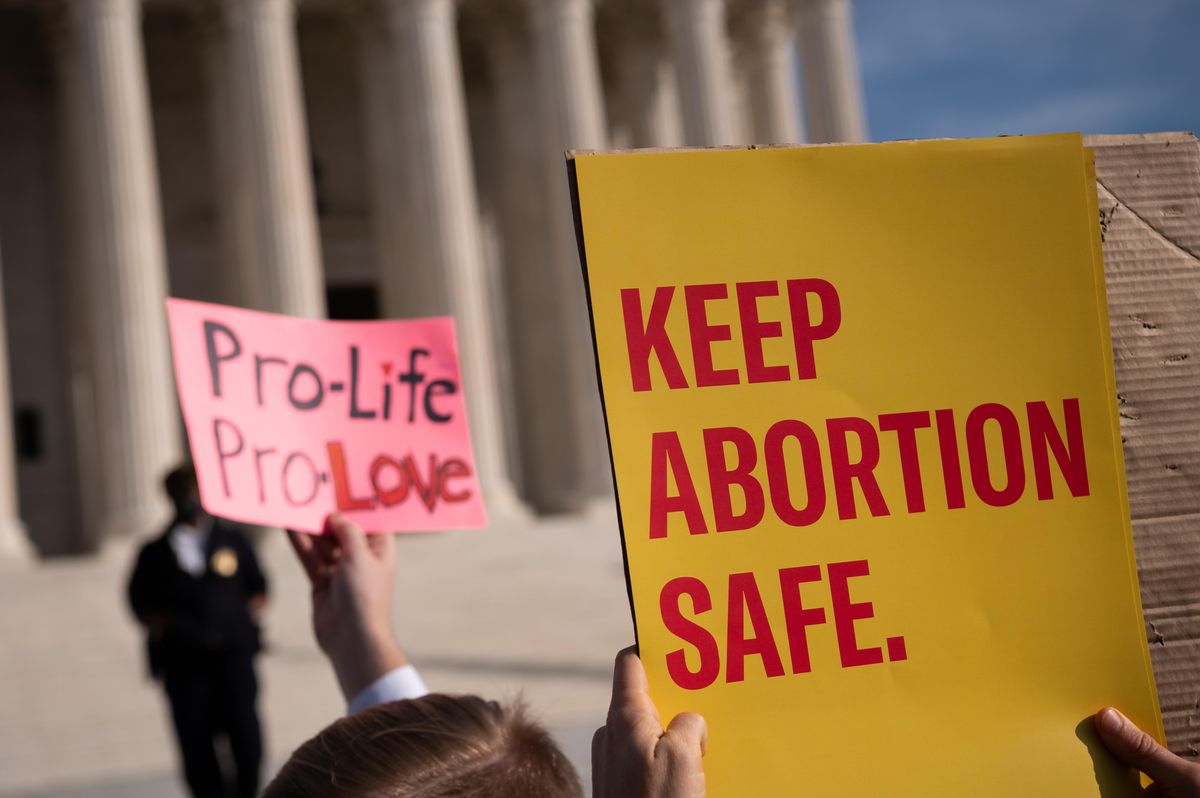On Wednesday the Supreme Court began hearing arguments on an issue that has had Americans fighting — and in some cases killing — each other for 50 years: abortion.
The court must decide whether a recent Mississippi state law that prohibits abortion after 15 weeks of pregnancy is legal and, more broadly, whether it runs counter to the Roe v Wade Supreme Court decision of 1973.
That decision legalized abortion nationally up until fetal viability — which is now around 23 weeks of pregnancy — on the grounds that women enjoy a constitutional right to privacy.
Early indications on Wednesday were that the conservative-dominated court would uphold the Mississippi law, but we won’t know if a majority will move to explicitly overturn Roe v Wade until a final ruling is issued next summer.
If Roe is struck down, almost half of American states would immediately outlaw most abortions. Passions are, as ever, running high.
Why is this issue so intense in the US?
Viewed from abroad, the battles over abortion in the US can sometimes seem strange. While other countries have struggled with the issue, the ferocity and violence surrounding the question in the US stands out.
One big reason is that in addition to arguing about abortion itself, Americans are often arguing about the way the issue was decided.
Opponents of abortion often argue that a moral issue like this should be left to elected state legislatures, which reflect the preferences of their constituents better than the unelected justices of the Supreme Court in far-off Washington, DC.
Supporters of choice, meanwhile, say an issue this fundamental is precisely one in which universal rights have to be identified and then upheld by the highest court in the land. If we’d left Jim Crow up to local legislatures, they point out, that injustice might have persisted for decades longer.
This tug-of-war between states’ rights and national prerogatives has defined America from the earliest days. It once plunged the country into war. And it’s still an electric issue in the US on everything from healthcare, to guns, to voting rights, to vaccine mandates. Abortion is no exception.
A problem with Roe v Wade. Even some supporters of the right to abortion see faults in Roe v Wade that have left it open to attack.
The late liberal Justice Ruth Bader Ginsburg, for example, felt the Court had perhaps moved too fast, issuing a sweeping decision before a broad majority of citizens and states were in line with it. She also argued that by focusing on privacy rather than the more universal concept of gender equality, the Supreme Court had left abortion on shakier ground legally.
When the Court enshrined a constitutional right to same-sex marriage in 2015, by contrast, it was already behind the popular curve — 30 states had already done so. At the time of Roe, only 20 states had legalized abortion.
Other countries have handled it differently, putting legislatures or popular referenda in the driver’s seat.
Majority-Catholic Italy, for example, legalized abortion in the late 1970s through a law backed by two referendums. Ireland also made the move in 2018 through a referendum, while Argentina did it last year through a legislative process.
Not everyone in these countries agrees with those moves, but supporters of the right to choose can still point to democratic and legislative legitimacy in a way that is harder to do in the United States.
So what do Americans actually think about abortion today? About 60 percent say it should be legal in most or all cases, according to a recent Pew poll.
But there’s a caveat: a recent AP/NORC poll showed that while 61 percent of Americans support that right within the first 12 weeks of pregnancy, that figure falls by thirty points when it comes to the second trimester. The Mississippi law applies just two weeks into the beginning of the second trimester.
What happens next? This court’s view on Roe won’t come out until next summer — that is, just 2-3 months before midterm elections. No matter which way it goes, the decision will be a(nother) culture war bomb ahead of that vote.


















